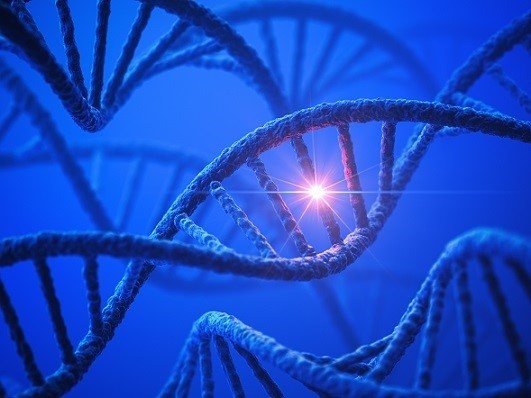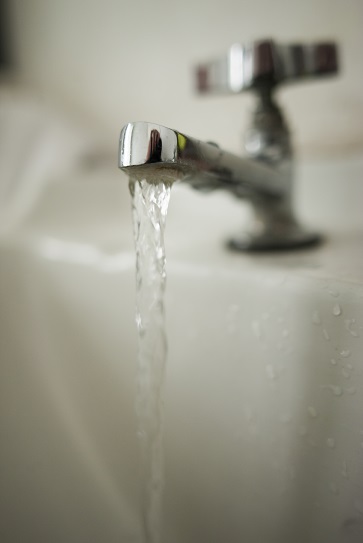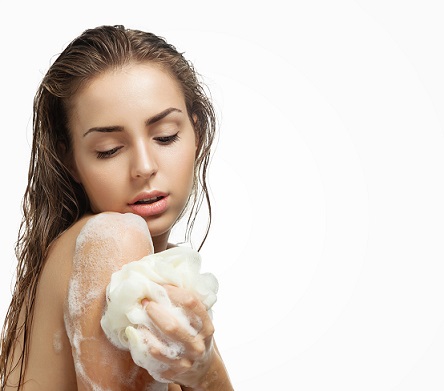 Acne is such a widespread problem that every man and his dog has his own theory about it.
Acne is such a widespread problem that every man and his dog has his own theory about it.
Some of them have caught on and have now become engrained in popular lore. Most of them have actually been debunked but generation after generation of acne patients continues to fall for them anyway.
They end up getting completely confused, which funnels them down a path where they achieve nothing while neglecting the real causes of acne.
The result is that they waste years trying new and improved face washes, or wondering whether they should eat the chocolate bar in their cupboard. If you are one of those people then don’t let the same happen to you!
Read this list of the most common acne myths, legends, and old wives tales and your acne clearing quest will not get derailed.
Myth 1 – chocolate is an acne causing nightmare
 There have been many anecdotal reports of chocolate causing acne outbreaks and over the years this created a grand myth about chocolate, the myth that it has a unique and extraordinary ability to wreck your skin.
There have been many anecdotal reports of chocolate causing acne outbreaks and over the years this created a grand myth about chocolate, the myth that it has a unique and extraordinary ability to wreck your skin.
If you’re one of the countless people that loves chocolate then I have great news: chocolate can cause acne, but it doesn’t have any special ability to do so. No magical substance has ever been identified and there isn’t any evidence of it being especially bad.
It is undeniable that chocolate breaks certain people out but the most likely explanation is the sugar. Sugar is one of the worst foods for acne and both milk and white chocolate are extremely high in it.
Most people probably got acne from the sugar, got confused and thought that the rest of the chocolate was to blame. If that is the case then chocolate is hardly unique; numerous other foods are high in sugar. Many of those foods have similarly bad reputations and the thing that connects them all is the sugar.
Fortunately this problem can easily be remedied by switching to dark chocolate. Very dark chocolate is very low in sugar and as a result will not break you out. In fact moderate amounts actually help your skin; dark chocolate is very high in antioxidants and it contains good levels of nutrients like magnesium.
Read Annihilate Your Acne – get the ultimate diet for clear and glowing skin!
Therefore chocolate is not only perfectly safe, but is actually healthy for your skin as long as you buy the right type. Even milk chocolate isn’t that bad; yes it’s very high in sugar and should only be eaten occasionally, but it doesn’t have unique acne powers compared with other sugary foods. This article provides even more in depth analysis of chocolate.
Myth 2 – you’re doomed by your genetics
 A lot of acne patients come to this conclusion after years of failed treatment; many will use endless amounts of face washes and start believing that they’re destined to have acne. Fortunately this is false: there are no genetics that prevent you from curing acne.
A lot of acne patients come to this conclusion after years of failed treatment; many will use endless amounts of face washes and start believing that they’re destined to have acne. Fortunately this is false: there are no genetics that prevent you from curing acne.
Acne genetics do exist, but they only make you more prone to bad skin; they don’t guarantee it. There are a number of important differences but the most significant one is that acne patients have far higher sebum production than clear skinned people. We know this from a study that examined several sets of twins; it found that all identical twins had the same rate of sebum production, whereas non-identical twins had varying rates…
…but what’s important for us is that their rates of acne were not the same. Despite the fact that they produced identical levels of sebum, one of the most important factors, each identical twin in a set had varying amounts of acne.
This shows that your genes don’t doom you to anything; each identical twin had the same genes yet they had a different result, which firmly shows that other factors are involved.
Genes make you more likely to have acne, but if you improve your lifestyle enough there is no reason why your skin can’t be clear. For example, you can reduce the damage of genetically high sebum production by finding as many ways to reduce it as possible (insulin, cortisol), and also by getting more antioxidants to protect the sebum.
Your genetics make clear skin harder, but they don’t make it impossible.
Myth 3 – it’s caused by androgens and hope is lost
 First you need to know one thing: acne IS a hormonal disease. It wouldn’t be possible without elevated levels of androgens and that’s why acne starts in the teenage years…
First you need to know one thing: acne IS a hormonal disease. It wouldn’t be possible without elevated levels of androgens and that’s why acne starts in the teenage years…
…but it is entirely wrong to say that these hormones guarantee that you’ll get acne. It is perfectly healthy to have high levels of androgens; they only cause a problem when they are combined with other factors.
The main reason why androgens cause acne is that they massively increase sebum production, but that is no problem if you are getting plenty of antioxidants in your diet. Androgens can also be made far worse by high levels of insulin; this hormone greatly enhances the ability of androgens to stimulate sebum production.
Therefore there’s nothing wrong with high androgens as long as insulin is under control. Insulin also stimulates sebum production itself, so by keeping it low your skin is more likely to withstand higher androgens.
To see that androgens aren’t the devil as claimed, we can also look at real world evidence. Average testosterone levels have been decreasing fast over the last century; the average range has moved from 2000ng-800ng down to 1070ng-270ng (according to Harvard health publications). If androgens guaranteed bad skin then acne rates would have fallen massively, but by most accounts they have gone up.
This doesn’t tell us much, but it does tell us that the relationship is far less clear cut than “you have more androgens, you have more acne”. Just like with genetics, having high amounts makes you more prone to acne, but it doesn’t guarantee it. You simply have to redouble your efforts to improve your diet and lifestyle.
Important article – the top 7 natural topical treatments for acne
PS: many people will recommend that you attempt to decrease testosterone and DHT to control acne. I do not recommend this, because those hormones are absolutely vital for your health. High amounts can improve your sex drive, aid fat loss, build more muscles, and promote a healthy mind with benefits such as less stress and clear headed thinking.
Note that this only applies to men; if you are a woman then your main sex hormone is estrogen. For women elevated androgens do not provide the same benefits and reducing them is a good idea.
Myth 4 – acne is caused by poor hygiene
 Acne is fundamentally a condition that starts inside the body, so no amount of good hygiene will ever completely fix it.
Acne is fundamentally a condition that starts inside the body, so no amount of good hygiene will ever completely fix it.
The main factors are your sebum oxidation levels and chronic inflammation – neither of which hygiene has a large effect on. Generation after generation of teenagers has been taught that hygiene cause acne, yet no matter how advanced their face wash is, they never get clear.
Hygiene can improve your skin by quite a bit, if you use the right treatment (like raw honey) but it can never fully solve the problem. There’s no need to bother with highly expensive face washes; you’ll just waste your money.
This includes the natural ones as well. They might sound good because they have a “natural” tag but most of them don’t have any proven benefits and never work in practise either.
Related article: the truth about sweat and acne
With all that said, you should still be hygienic, as it will improve your acne somewhat, but don’t neglect the more important factors of diet and lifestyle. To maintain basic face hygiene all you need is water and good quality soap. If you want to help your skin as much as possible, then you can go further and use the few facial treatments that do work, which include the likes of raw honey and aloe vera.
To find out what really causes acne, read this article about sebum oxidation and then this article about chronic inflammation.
Myth 5 – diet has nothing to do with acne
 You don’t need any evidence to dispel this myth; you just need common sense.
You don’t need any evidence to dispel this myth; you just need common sense.
Think about the page for diet on a doctor’s website. It will give you endless information about how different types of diet can affect your health, and it will list almost endless conditions that can result from it. You also get numerous government pages for vitamins and minerals, detailing the numerous functions they have in the body.
In fact if you have any health problems, you will first be told to fix your diet. Think of it this way; if diet and the nutrients you get from it can affect your health in such a vast amount of ways, then how can it not affect your skin? Your skin is just another part of the body after all.
Your diet can affect your skin in a massive amount of ways; your antioxidant intake, nutrient levels, and sugar intake are all big factors. Then you’ve got free radicals from foods, carbohydrate intake, and a variety of other compounds that affect important factors like insulin and cortisol.
Important article – the top 6 vitamins and minerals for clearing acne
To know that diet causes acne you only need to put two and two together. For example, eating broccoli will substantially increase your vitamin E levels, and studies have shown that lack of vitamin E causes acne.
Add the two together, and you know that broccoli can affect your acne, and by extension so does your diet.
Here are a few more incredibly basic examples:
One – vitamin C is proven to increase collagen formation and keep your skin looking healthy and youthful for longer. Strawberries contain 97% of the daily allowance for vitamin C per hundred gram serving.
Two – the chemical BPA is well known to cause inflammation levels in the bloodstream to surge. Canned tomatoes have very high levels of BPA thanks to their lining.
Three – sleep deprivation is proven to worsen acne, magnesium is proven to improve sleep quality, and dark chocolate is proven to contain high amounts of magnesium.
Four – eating sugar is like taking a pill to redden and inflame your pimples. Our modern world is a giant feast of sugar.
The opportunities continue way beyond this.
Myth 6 – hot water helps your skin
 This myth came about due to a simple misunderstanding. The truth is that warm water can help your skin, as it relaxes your skin pores. That makes it easier to remove some of the sebum, dead skin cells, and other junk that’s blocking them and allowing acne to form.
This myth came about due to a simple misunderstanding. The truth is that warm water can help your skin, as it relaxes your skin pores. That makes it easier to remove some of the sebum, dead skin cells, and other junk that’s blocking them and allowing acne to form.
Warm water does this very well but the problem is that people got confused, and thought that if warm water works then hot water should work even better. That is a fatal mistake; hot water will still unblock your pores, but at the same time it massively dries out your skin.
This causes your sebaceous glands to produce more sebum to re-lubricate the skin, and the result is that sebum production is higher and you’re no better off than if you used cold water. Warm water isn’t strong enough to dry out the skin so it’s absolutely fine, if you want to unblock your pores.
The best showering method for acne is the cold shower. Read more here
Do remember that you should never use warm water all the time; cold water is very helpful for acne as it tightens the pores and prevents them from being blocked. Cold water is also excellent for improving the general tone of your skin. We’ll discuss that further in another article (update: see link above).
For now, just remember to never use hot water!
Conclusion
Forget those myths and your chances of being derailed are far lower.
Remember that genetics and hormones make you more likely to have acne, but they don’t guarantee it. Remember that if you’re a “chocoholic”, there’s nothing wrong with your favourite snack. Finally, remember that warm water is good for your skin but hot is not, and remember that you can never fully cure your acne with hygiene.
The real causes of acne are chronic inflammation and sebum oxidation; always remember that and don’t let yourself be knocked off course.
NEXT: learn the root causes of acne, clear your skin permanently
Thanks for reading!
